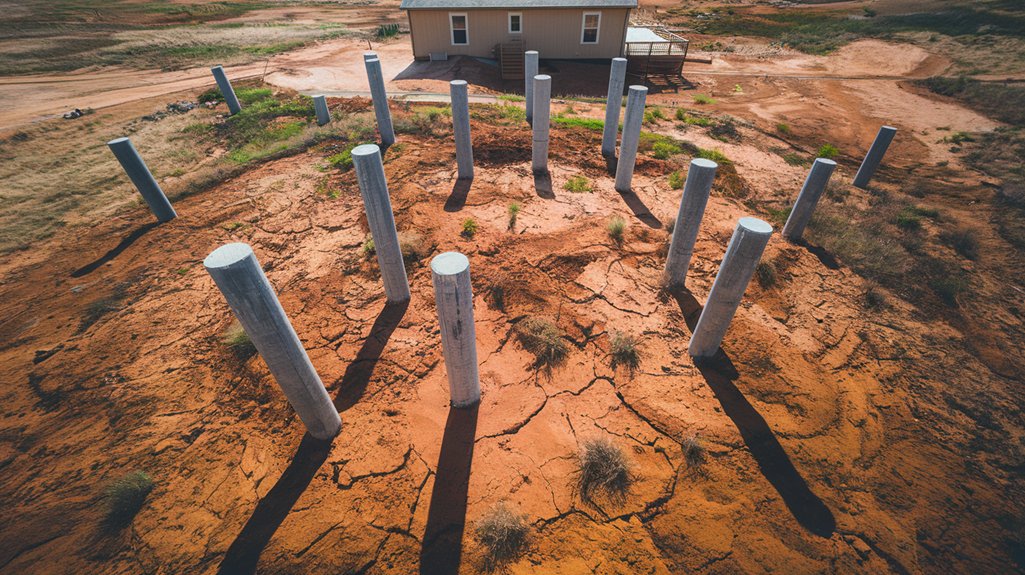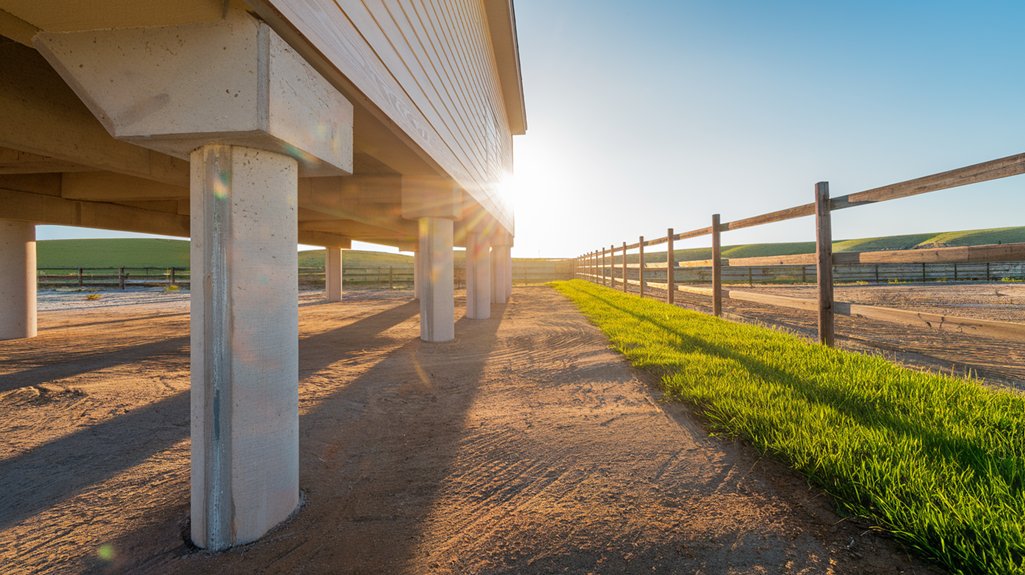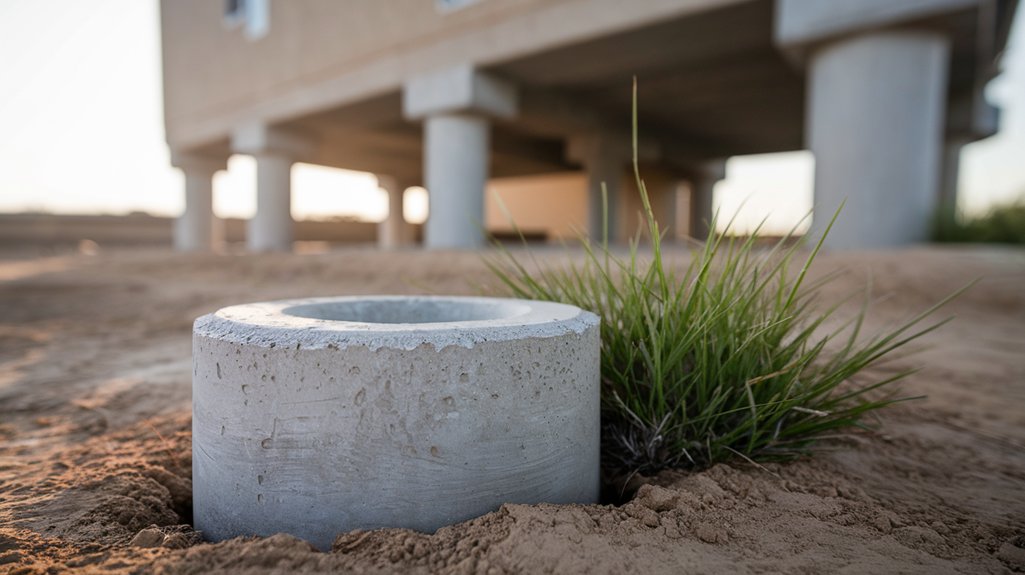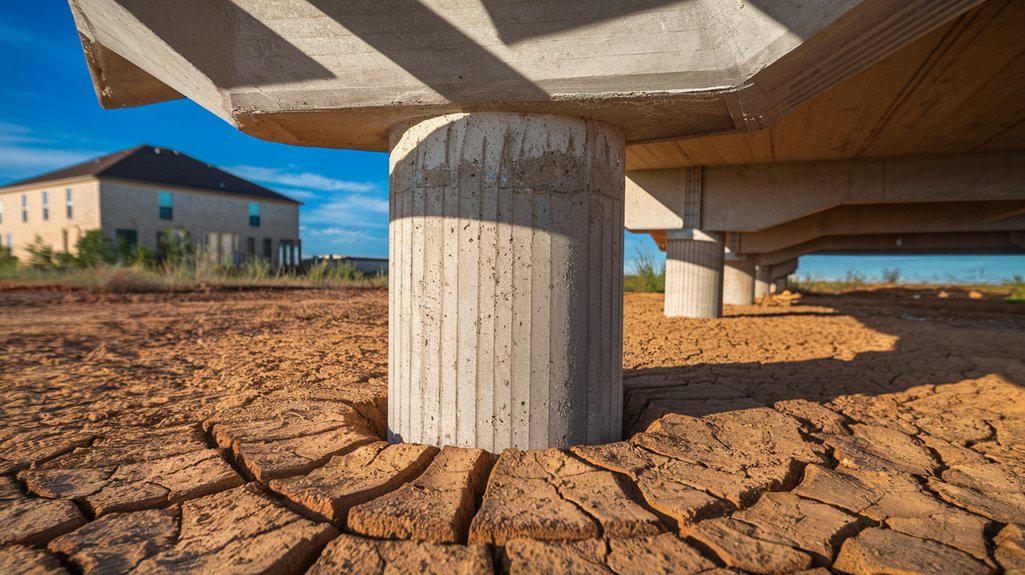The Benefits of Concrete Piers for Home Foundations in Southcentral Texas
If you reside in Southcentral Texas, you’re likely familiar with the challenges posed by expansive soils to your home’s foundation. Concrete piers for home foundations present a robust solution, adapting to shifting soil conditions and providing essential support to mitigate settling risks. Understanding their unique advantages can lead to informed decisions about your home’s stability and long-term value.
Key Takeaways
- Adaptability: Concrete piers adjust to Southcentral Texas’s expansive soils, reducing foundation settlement risks.
- Enhanced Load Distribution: They ensure structural integrity and long-term stability for homes in shifting soil areas.
- Moisture Resistance: Concrete piers resist moisture infiltration, protecting foundations from water-induced damage.
- Cost-Effectiveness: Their durability leads to lower maintenance expenses and fewer repairs over time.
- Increased Home Value: Utilizing concrete piers enhances home value through improved stability and longevity.
Understanding the Unique Soil Conditions in Southcentral Texas

Southcentral Texas is characterized by expansive clay soils that expand when wet and shrink when dry, leading to potential structural issues if not properly addressed. Conducting thorough soil testing before construction is essential to assess the specific characteristics of your property’s soil. This knowledge allows for the selection of appropriate foundation types, such as concrete piers for home foundations, to mitigate risks associated with shifting soils.
Advantages of Concrete Piers Over Traditional Foundations

Compared to traditional foundation types, concrete piers for home foundations offer several benefits that enhance your home’s stability and longevity:
- Adaptability: Easily adjusted for different soil conditions, making them suitable for varied landscapes.
- Reduced Risk of Settlement: Transfer the load of your home deeper into stable soil, minimizing settlement and shifting.
- Cost-Effectiveness: While upfront costs may be higher, long-term savings from reduced maintenance and repairs make concrete piers a smart choice.
Enhanced Stability and Load-Bearing Capacity

The enhanced stability and load-bearing capacity of concrete piers for home foundations are crucial benefits for homeowners. These piers provide a strong base, allowing for better distribution of loads, essential for maintaining structural integrity over time. Unlike traditional foundations, concrete piers minimize the risk of settling or shifting, reducing the likelihood of costly repairs or structural issues.
Resistance to Moisture and Soil Movement
Concrete piers for home foundations offer exceptional resistance to moisture and soil movement, making them a smart choice for your home’s foundation.
- Reduced Soil Movement: Anchor deep into the ground, minimizing the effects of shifting soil.
- Moisture Resistance: Resist water infiltration, helping to prevent damage from excessive moisture.
- Enhanced Soil Stability: Distribute weight evenly, maintaining the integrity of your foundation in fluctuating soil conditions.
Cost-Effectiveness and Long-Term Durability
When considering a strong foundation, cost-effectiveness and long-term durability are crucial factors. Concrete piers for home foundations stand out in cost analysis, proving to be a wise investment. Their longevity means fewer repairs and less worry for homeowners. With reduced maintenance, you’ll enjoy significant savings over time.
| Initial Cost | Long-Term Savings |
|---|---|
| Higher than wood | Lower maintenance costs |
| Durable materials | Fewer repairs needed |
| Longer lifespan | Increased home value |
| Greater stability | Peace of mind |
Environmental Considerations and Sustainability
Considering the environmental impact of your home foundation, concrete piers for home foundations offer a sustainable choice aligning with eco-friendly practices.
- Reduced Land Disturbance: Require less excavation compared to traditional foundations, preserving natural landscapes.
- Longevity and Low Maintenance: Durability means fewer repairs and replacements, reducing waste over time.
- Energy Efficiency: Enhance your home’s energy efficiency, helping to lower energy consumption and costs.
Frequently Asked Questions
How Long Does It Take to Install Concrete Piers?
The installation timeline for concrete piers for home foundations typically ranges from a few days to a week, depending on site conditions.
Are Concrete Piers Suitable for All Types of Homes?
They excel in load distribution for specific structures, but assess your home’s design and soil conditions for best suitability.
What Maintenance Do Concrete Piers Require?
Perform regular inspections and seasonal adjustments to ensure stability.
Can Concrete Piers Be Installed in Wet Conditions?
Yes, with the right installation techniques and drainage considerations.
How Deep Should Concrete Piers Be?
Typically 8 to 12 feet deep, depending on soil and load requirements.
In conclusion, choosing concrete piers for home foundations in Southcentral Texas is a smart move. They adapt to the region’s challenging soil conditions, providing enhanced stability and durability while minimizing long-term maintenance costs.
Learn more about expansive soils and foundation engineering from the USDA Natural Resources Conservation Service.
For expert consultation and installation services using concrete piers for home foundations in Southcentral Texas, contact Valor Concrete. We’re here to ensure your foundation is built to last.

